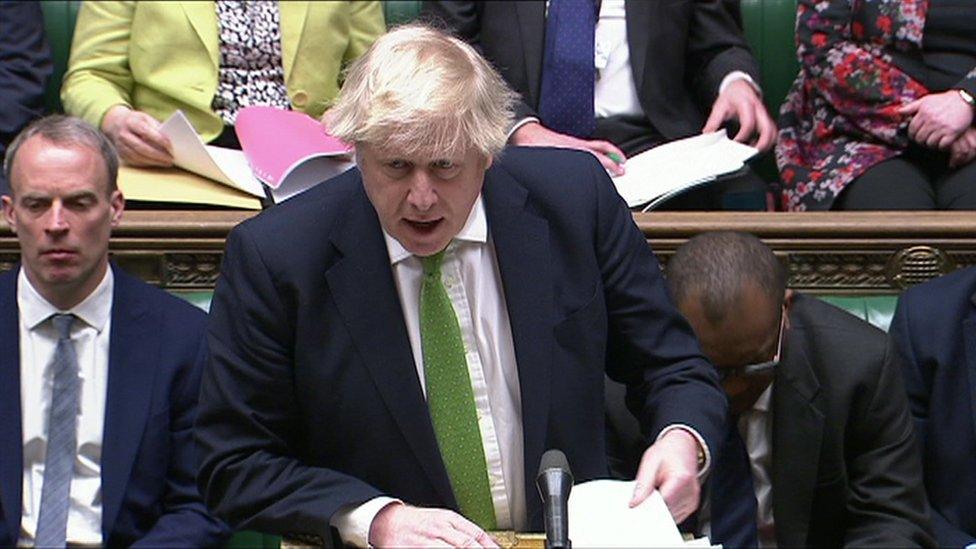Ukraine conflict: Biden sanctions Russia over 'beginning of invasion'
- Published
Watch: US announces full-blocking sanctions on Russia
The US has hit Russia with wide-ranging sanctions over what President Joe Biden called "the beginning of a Russian invasion of Ukraine".
"We've cut off Russia's government from Western financing," Mr Biden said.
It came after Russian politicians authorised President Vladimir Putin to send troops into two rebel-held parts of eastern Ukraine.
Russia has recognised the regions as independent - a move Ukraine said attacks its sovereignty.
Western nations largely see the action as a pretext for a wider invasion. On Monday Mr Putin ordered soldiers into the breakaway Donetsk and Luhansk regions, to "keep the peace" - a description the US called "nonsense".
Satellite imagery over the past 24 hours has shown several new troop and equipment deployments in western Russia, and more than 100 vehicles at an airfield in Belarus near Ukraine's border, according to US space technology company Maxar.
Russia's military has not commented, and it is not clear if any Russian troops have yet been sent into eastern Ukraine.
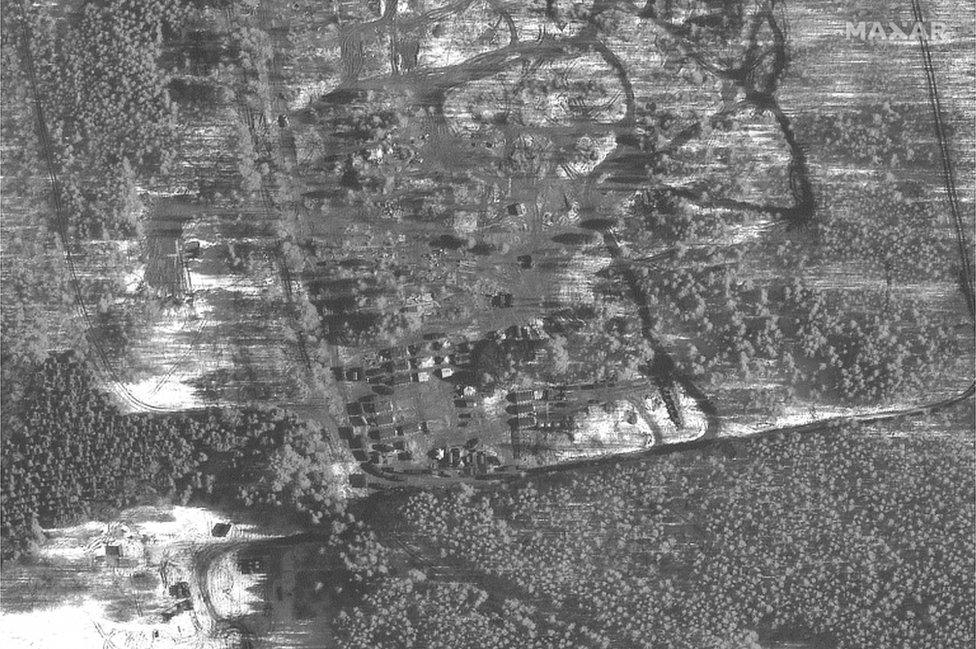
A handout satellite image made available by Maxar Technologies shows troop tents and a housing area in Pochep, Russia

Announcing his "first tranche" of measures directly targeting the Russian state, Mr Biden said on Tuesday: "To put it simply, Russia just announced that it is carving out a big chunk of Ukraine."
The moves include sanctions on Russia's foreign debt, meaning the country can no longer raise money for its state financing from Western financial institutions.
The US is also punishing high-ranking "elites" from Russia.
"They share the corrupt gains of the Kremlin policies, and should share in the pain as well," Mr Biden said.
The US had already banned American companies from dealing with the rebel-held Ukrainian regions of Donetsk and Luhansk - but few companies do.
The UK and European Union also announced a wave of sanctions against Russian banks and individuals earlier on Tuesday.
Among the developments:
All 27 EU member states agreed a range of anti-Russia measures, targeting all 351 members of Russia's upper house that voted to recognise the two breakaway regions of Ukraine as independent states. The EU's response also targets 27 individuals and entities involved in the decision.
UK Prime Minister Boris Johnson announced that five banks have had their assets frozen in Britain, along with three Russian billionaires who will be hit with UK travel bans. Canada, Japan and Australia later confirmed similar measures
Germany also halted a major joint infrastructure project with Russia, the Nord Stream 2 gas pipeline, despite Europe's reliance on Russian gas supplies and the fact that the €10bn (£8.3bn) project is ready to open supply lines.
None of the sanctions went as far as what had been threatened in the event of a full-scale invasion of Ukraine, though both US and European officials stressed that more action would follow if the situation deteriorated.
The US is also moving troops into Nato member states Estonia, Latvia and Lithuania - which are on or near Russia's border - an official said.
The military redeployment from Italy involves some 800 infantry troops along with a number of F-35 fighter jets and 20 attack helicopters, some of which will go to Poland.
EXPLAINER: What sanctions are being imposed on Russia?
BACKGROUND: The Nord Stream 2 pipeline and the Ukraine crisis
FACT-CHECKED: Vladimir Putin's Ukraine speech
Diplomatic efforts to avert the Ukraine crisis have so far failed, and in Russia on Tuesday President Putin said the Minsk agreements - the peace deals aimed at averting years-long conflict in eastern Ukraine - "do not exist".
The agreements "were killed long before yesterday's recognition of the people's republics of Donbas," he said, using the administrative name for the two regions of eastern Ukraine. "And not by us, not by representatives of these republics, but by the current Kyiv authorities."
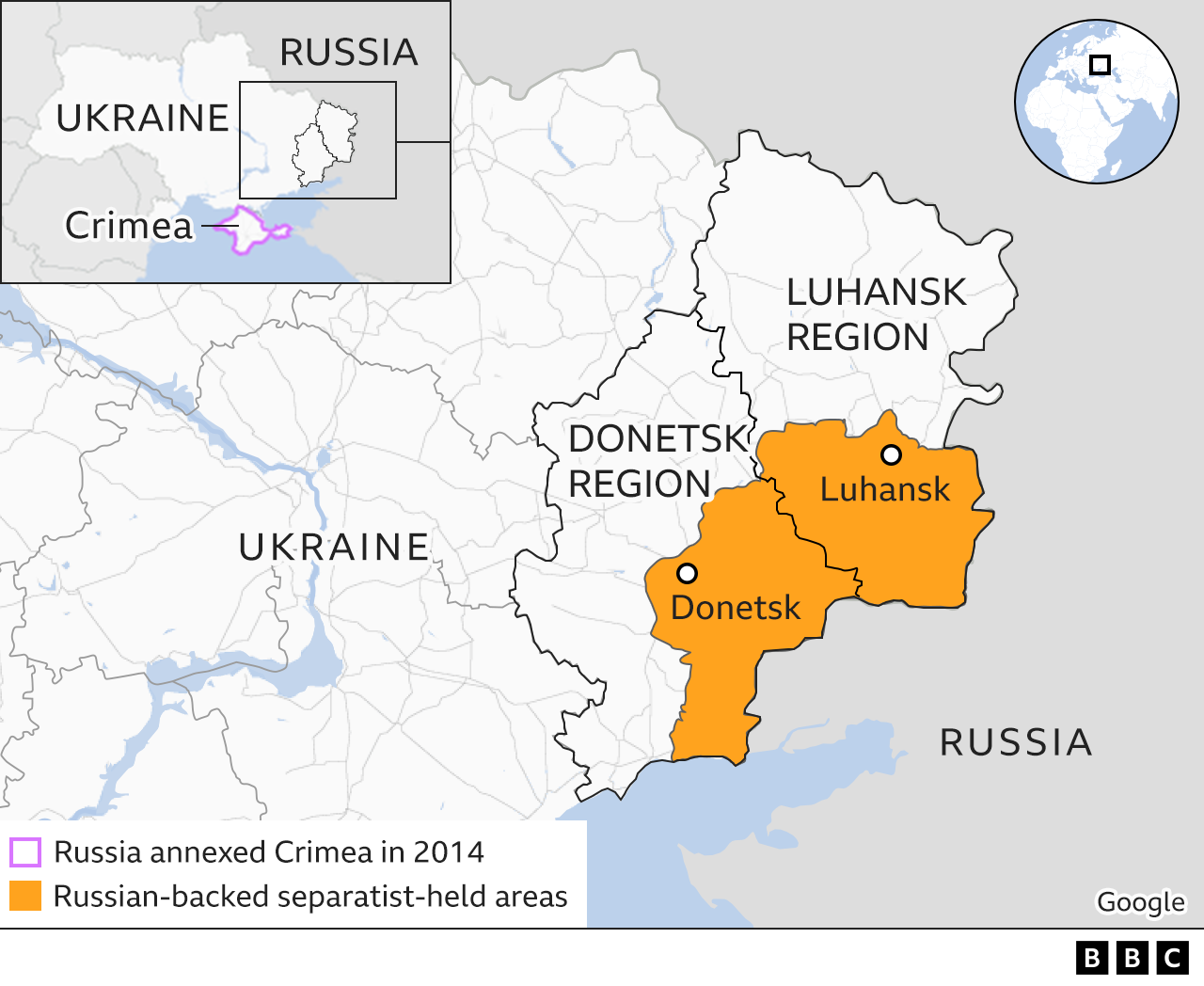

US Secretary of State Antony Blinken followed Mr Biden's speech by announcing he had cancelled a planned Thursday meeting with his Russian counterpart.
"Now that we see the invasion is beginning and Russia has made clear its wholesale rejection of diplomacy, it does not make sense to go forward with that meeting at this time," he said.
But he added that the US would engage with Russia if it changed its approach.
Ukraine's President Volodymyr Zelensky earlier said he would consider cutting off diplomatic ties with Russia altogether over the crisis.
In an evening address to the nation, he said he was calling up military reserve members for training - but also said Ukraine would still pursue a diplomatic solution.
There was "no need" for a full military mobilisation, Mr Zelensky said.
Russian-backed rebels in eastern Ukraine have seized large swathes of territory since fierce fighting broke out in 2014. An estimated 14,000 people - including many civilians - have since died.
Related topics
- Published22 February 2022
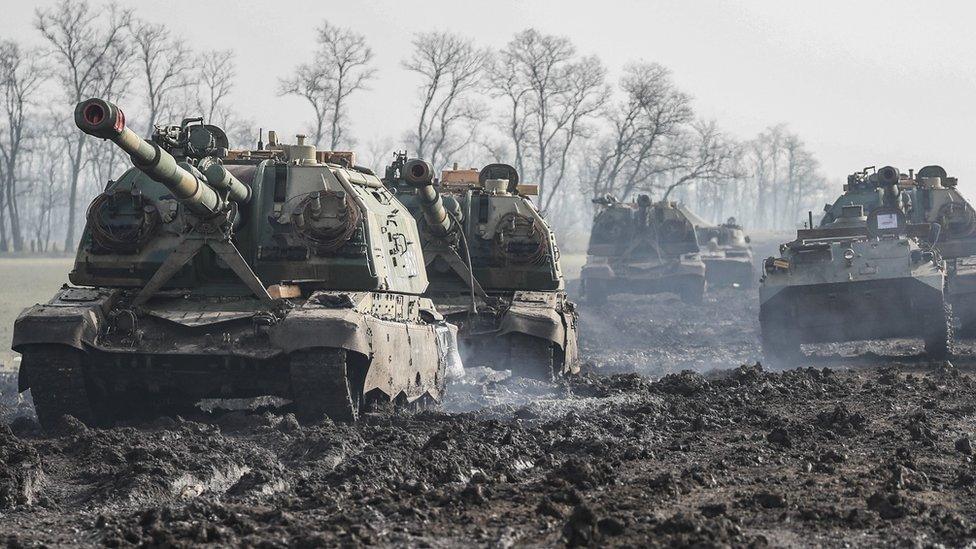
- Published29 September 2022
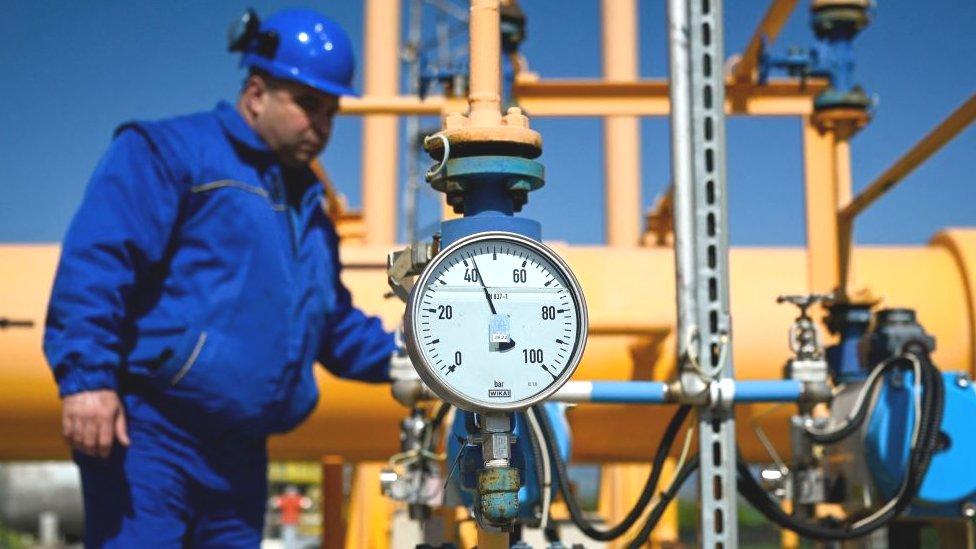
- Published23 February 2024
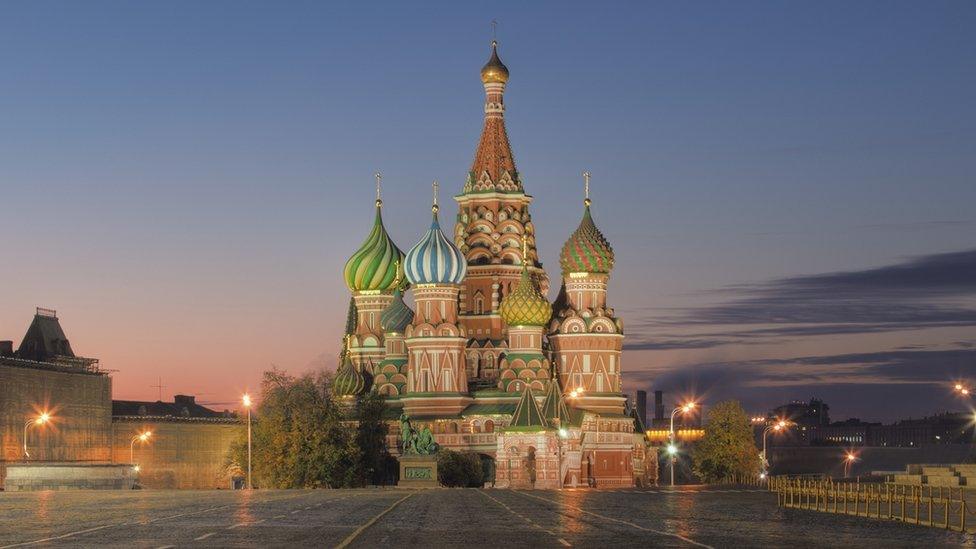
- Published22 February 2022
